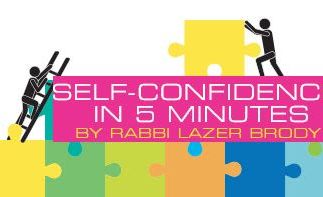
Sweet Surrender
To surrender or not to surrender is a choice that manifests itself in all aspects of our lives: with our spouses and our children; at the office; on the roadways...

July 2003: My husband was dying. The cancer had spread throughout his body. Already, that evil disease had eaten half his lungs and no longer permitted him to sleep in a reclining position. Instead, my husband had to sleep sitting upright in a sofa-chair in our bedroom, breathing through a tube connected to an oxygen tank.
It was an exhausting time. I had to maintain a semblance of normal everyday routine for our four teen-aged children while holding down a full-time job and supervising my husband’s daytime care. (Thank goodness for the help I received from Israel’s health funds and national insurance institute!) Even so, responsibility for my husband’s late afternoon, evening, and night shifts fell to yours truly.
One evening, after a particularly difficult day I got my husband set up for the night in his sofa-chair and pulled back the covers on my own bed, ready to jump in. At that very moment, he called my name.
I looked at him.
“Can you bring me some watermelon?” I must have had a sourpuss look on my face because he added,  “If it’s not too hard for you.”
“If it’s not too hard for you.”
As a matter of fact it is veeeeeeery difficult, I wanted to say but I held my tongue. Besides, on bus rides to the office I was reading a marvelous book entitled “Life Lessons”. Written by Elisabeth Kübler Ross, the foremost expert on death and dying, this slim little gem outlined 14 important lessons on the mysteries of life and living. (This was in the B.E. (before emunah) period of my life when I grabbed eternal wisdom where I found it.) As I had just finished reading Chapter 12—Surrender, I decided to give it a shot.
I stumbled to the kitchen. Opening the refrigerator, I recalled how the cancer had made it difficult for my husband to swallow liquids. Taking out the watermelon, I reflected upon the fact that he received most of his moisture now through sucking ice cubes or watermelon cubes. Fighting the urge to fall asleep on my feet, I picked up the knife and said aloud, “I surrender my will to Your Will.” I repeated those words like a mantra. Slowly but surely the small cubes of watermelon filled a bowl. The task completed, I took the bowl to my husband, collapsed on my bed, and fell asleep before my head hit the pillow.
My husband died before sunrise the next morning.
Whenever I reflect on that night, I am forever grateful for taking advantage of what turned out to be the very last chance Hashem offered me to perform a mitzvah for my husband while he was yet alive. And it was all due to an act of surrender. Wow!
Before going further, let’s clarify something: Surrender means giving in, not giving up. The directions are important, here. Giving in is an act of humility. It means surrendering one’s will to Hashem’s will. On the other hand, giving up is a loss of will altogether – our will. It means, “I can’t do this” and is a mark of despair or despondency.
To surrender or not to surrender is a choice that manifests itself in all aspects of our lives: with our spouses and our children; at the office; on the roadways; in the crowded supermarket on erev Shabbat. It manifests itself in money issues and in discussions over discipline about our kids. In short, it is everywhere.
With the prevalence of surrender in our lives, I wonder why we don’t succeed in exercising it more often. After all, it’s just an issue of mind over matter, right? This is the crux of the issue, for as Rabbi Lazer Brody has said numerous times in his classes, the greatest distance in the world is the one between our minds and our hearts.
Reasons for failure to bridge this distance are many:
A lack of mindfulness: Losing focus on “keeping the main thing, the main thing” is the cause of many failures.
Force of habit: Failure may be no more than a juuk b’rosh (a preconceived idea), or an outmoded way of doing things.
Western–bred sensibilities: Western society hammered into our heads the idea of being a rugged individualist. According to them, one must be strong, and never show weakness by seeking support or advice from loved ones. This is especially apparent in dealing with money issues, which leads to…
Sad feelings of discomfort, annoyance, resistance and/or resentment.
These reasons for failure have no place in Hashem’s world. It is our job to retrain our minds and hearts in order to live better and happier lives. Surrender is one of Hashem’s many tools at our disposal to retrain ourselves. Then, when we succeed in surrendering our will to Hashem’s Will—and it could be something as innocuous as allowing a car to merge in front of us on the roadway— a flood of amazing feelings await us. And we begin to wonder why we’d never realized it before.












9/08/2021
Thanks so much for sharing. I know you wrote from your heart because you reached my heart with your words.
2/09/2017
beautiful article!!
moving and inspiring! Toda raba!
2/09/2017
moving and inspiring! Toda raba!